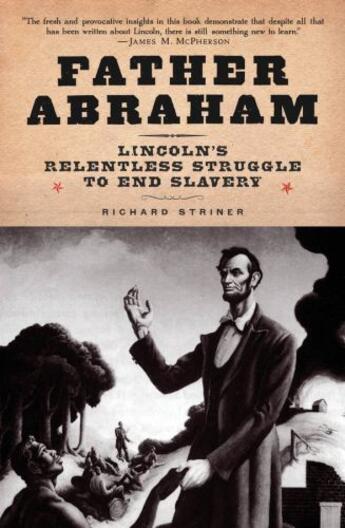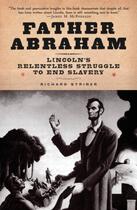-
Nombre de pages : (-)
-
Collection :
(-)
-
Genre :
(-)
-
Thème :
Non attribué
-
Prix littéraire(s) :
(-)
Résumé:
Lincoln is the single most compelling figure in our history, but also one of the most enigmatic. Was he the Great Emancipator, a man of deep convictions who ended slavery in the United States, or simply a reluctant politician compelled by the force of events to free the slaves? In Father... Voir plus
Lincoln is the single most compelling figure in our history, but also one of the most enigmatic. Was he the Great Emancipator, a man of deep convictions who ended slavery in the United States, or simply a reluctant politician compelled by the force of events to free the slaves? In Father Abraham, Richard Striner offers a fresh portrait of Lincoln, one that helps us make sense of his many contradictions.
Striner shows first that, if you examine the speeches that Lincoln made in the 1850s, you will have no doubt of his passion to end slavery. These speeches illuminate the anger, vehemence, and sheer brilliance of candidate Lincoln, who worked up crowds with charismatic fervor as he gathered a national following. But if he felt so passionately about abolition, why did he wait so long to release the Emancipation Proclamation? As Striner points out, politics is the art of the possible, and Lincoln was a consummate politician, a shrewd manipulator who cloaked his visionary ethics in the more pragmatic garb of the coalition-builder. He was at bottom a Machiavellian prince for a democratic age. When secession began, Lincoln used the battle cry of saving the Union to build a power base, one that would eventually break the slave-holding states forever. Striner argues that Lincoln was a rare man indeed: a fervent idealist and a crafty politician with a remarkable gift for strategy. It was the harmonious blend of these two qualities, Striner concludes, that made Lincoln's role in ending slavery so fundamental.
Father Abraham challenges recent portraits of Lincoln as an essentially passive politician and reluctant abolitionist. Exhaustively researched and crisply argued, this superb book gives us a new appreciation of Lincoln as moral leader.
Donner votre avis















